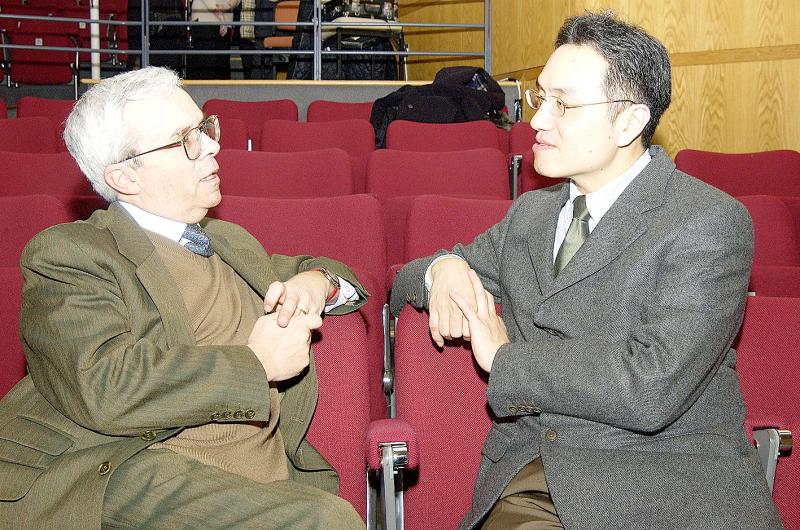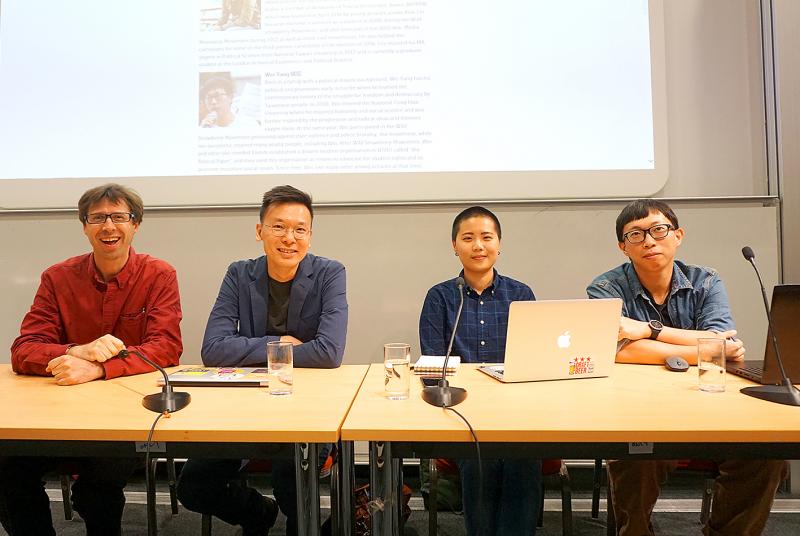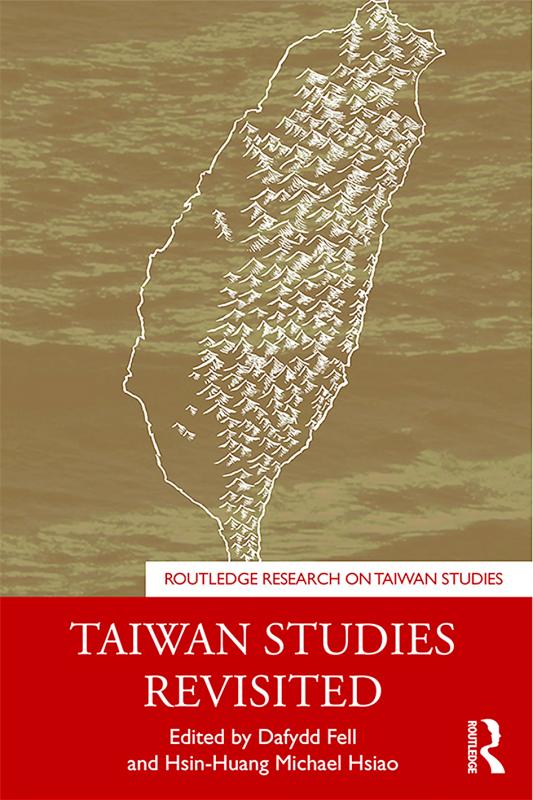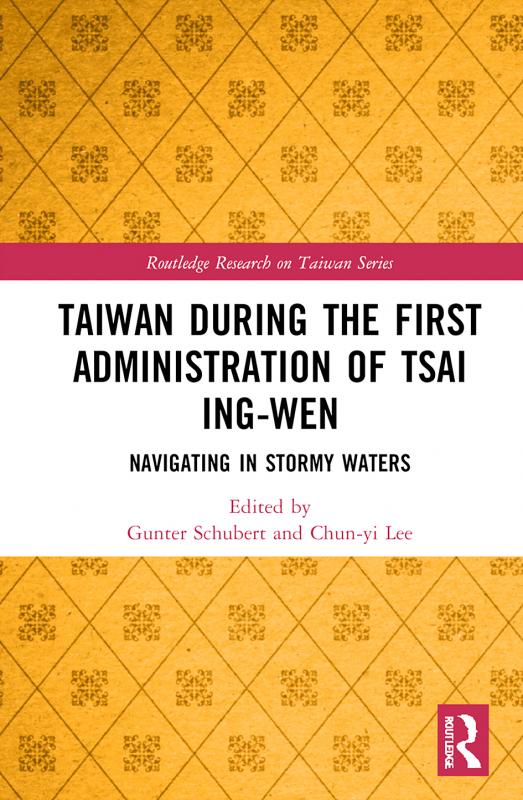In academia as in international politics, Taiwan hasn’t always had a distinct identity.
In the mid-1990s, if the country did feature in the curricula of UK universities, “it did so almost exclusively as one of the players in the development of cross-strait relations,” recalls Robert Ash, now an emeritus professor in the School of Oriental and African Studies (SOAS), part of the University of London.
Thanks to people like Ash, Taiwan now has some space of its own in a growing number of academic institutions.

Photo courtesy of SOAS CTS
According to Ash, among some SOAS China Studies academic staff there was a growing feeling that the study of Taiwan was underrepresented at the school. This led to the writing of a draft report on how Taiwan Studies at the school could be enhanced, backed by the leadership of SOAS China Institute and the editor of The China Quarterly, one of the world’s leading China-focused research journals.
If the initiative were to succeed, Ash says, it was obvious that external funding would be needed, given the perennial financial constraints that face British universities.
Following talks between SOAS and the Taipei Representative Office in the UK (Taiwan’s de facto embassy in London), in 1998 the Taiwanese side agreed to fund a professorship at the school, to be named the Chiang Ching-kuo Chair of Taiwan Studies, in honor of Chiang Ching-kuo (蔣經國), Taiwan’s president from 1978 until his death in 1988.

Photo courtesy of SOAS CTS
“I had a strong belief that the study of Taiwan is important in its own right and on its own terms. Accordingly, I felt that the development of Taiwan Studies at SOAS needed not only to embrace its role in regional and broader international geopolitical terms, but also to include consideration of Taiwan’s own history, culture and social and economic development,” Ash says.
He was soon joined by Meghan Greene, now at the University of Kansas. A historian of the Republic of China (ROC) under the Chinese Nationalist Party (KMT) before and after 1949 — when the regime led by Chiang Kai-shek (蔣介石) fled to Taipei — Greene took up a three-year postdoctoral fellowship in Taiwan Studies that was also funded by Taiwan.
In 2005, Ash became the founding director of the school’s Center of Taiwan Studies (CTS). Looking back at that period, he singles out four milestones.

Photo courtesy of Routledge
FOUR MILESTONES
One was setting up the European Association of Taiwan Studies (EATS) in 2004. Now a registered civil association under German law, EATS has held annual conferences in different European cities since the inaugural event at SOAS in 2004.
In the 2006-07 academic year, the center established a master’s degree program in Taiwan Studies. Ash has no doubt it was the first such program in the UK, and believes it was the first in the world outside Taiwan.

Photo courtesy of Routledge
The Routledge Research on Taiwan Book Series was launched in 2008. Edited by Dafydd Fell, who succeeded Greene in 2003, the series now includes 38 titles, with five more in the pipeline.
In 2010, after SOAS secured financial support from Taiwan’s Ministry of Education for a Taiwan-related teaching post, the school began offering an undergraduate course on Taiwan. Currently, undergraduates can sign up for modules on: elections and social movements; international and cross-strait relations; culture and society; and Taiwan’s cinema.
In recent years, Chinese diplomats have gained a reputation for aggressively confronting expressions of support for Taiwan, Tibet or the Uighurs. However, the reaction of Beijing’s representatives to Taiwan Studies at SOAS has been nuanced.
“The Chinese Embassy in London showed considerable interest in the SOAS program when it was first set up. It would be wrong to say that they opposed it in any active sense, even if one or two of the events we organized elicited their condemnation, albeit not publicly broadcast, as far as I am aware. At no point on my watch were any threats made to withdraw or deny funding because of the existence or activities of the Taiwan Studies Program,” Ash says.
Some Taiwanese who have studied at CTS have stayed on in the UK, one being Isabelle Cheng, who received her PhD in 2012.
Cheng is a senior lecturer in the School of Area Studies, History, Politics and Literature, University of Portsmouth, and a research associate at CTS. Since 2018, she’s served as the secretary-general of EATS.
“SOAS allowed me to get to know Taiwan from the outside, and also to situate Taiwan within the school’s ‘Oriental and African’ remit. I can’t recall whether reflections upon colonialism and post-colonialism were particularly strong when I was there, but what I learned and observed as a student there allowed me to engage in the decolonization efforts now earnestly undertaken across higher education in the UK,” Cheng says.
Cheng particularly appreciated the various events, large and small, hosted by CTS.
“Debates were often heated… it didn’t matter whether the speaker was a doctoral student, a political heavyweight or a cultural celebrity,” Cheng recalls. “Those events not only enriched the curriculum, but also provided great opportunities for PhD students for networking, which is a critical skill in academia.”
Matt Taylor was in Taipei when he decided to return to the UK to attend the Taiwan Studies master’s program at SOAS.
Taylor, now the press and communications adviser at the Taipei Representative Office in the UK, says that, thanks to the wide variety of courses on offer, he was able to satisfy his desire to learn more about Taiwan from a number of angles.
Taylor regards SOAS as “essentially unrivaled when it comes to Taiwan Studies. It offers a range of subjects bound to interest students from other departments. This in turn increases knowledge and awareness of Taiwan.”
Like Cheng, Taylor speaks highly of the extracurricular seminars and lectures, including the Taiwan Studies Summer School, that the center organizes. “We were encouraged to follow our own academic intrigues when it came to research. I always felt that our opinions and viewpoints were valued and understood,” he says.
He thinks the growing popularity of Taiwan Studies in recent years is likely a sign that more and more people around the world are becoming aware of Taiwan’s importance.
Like Ash, Taylor favors a further shift away from studying Taiwan merely in the context of cross-strait relations. Stressing that he’s speaking for himself, not his employer, he says: “Taiwan Studies should be an interdisciplinary subject in its own right, and there needs to be a focus on establishing the field in more UK higher education institutions. But funds for any such expansion will probably have to come from Taiwan.”
CHALLENGES
Dafydd Fell — who arrived at SOAS in 1999 as a PhD student, and has been the director of CTS since the 2012-2013 academic year — says that building a Taiwan Studies program outside Taiwan is challenging. Some of the Taiwan-focused centers established in the past two decades have fallen apart, he adds.
Such programs, “tend to be highly reliant on a handful of enthusiastic academics. If they collapse, it’s often down to people retiring, changing universities or losing funding,” Fell says. “So it’s hard to say what the future holds for CTS.”
He explains that government funding from Taiwan for international programs usually comes in the form of short-term grants.
“This makes it hard to do long-term planning, something crucial when you have teaching programs. We’ve been fortunate to have somehow maintained unbroken funding since 1999,” he says.
Attracting students to a niche field isn’t easy.
“However, the fact we’ve been able to run an increasing number of Taiwan modules and maintain high student numbers is encouraging. In fact, in the academic year just ending, we had the most students in the last 20 years,” Fell says.
Ensuring CTS doesn’t get labeled as favoring a particular political camp in Taiwan is especially important, and this can be difficult when teaching modules on politics and society, Fell admits. Many of the 60 to 70 extracurricular events the center organizes in a typical year feature politicians from mainstream and alternative political parties and movements.
“The key is getting a balance in our events program,” Fell says.
Taking a long-term view, Fell expresses cautious optimism: “Taiwan Studies is so much more vibrant now than when I was trying to write my dissertation on Taiwan’s politics in the early 1990s. Back then, so little was available in English. Since 2017, I’ve been arguing that we’re in a golden age of Taiwan Studies.”

Jacques Poissant’s suffering stopped the day he asked his daughter if it would be “cowardly to ask to be helped to die.” The retired Canadian insurance adviser was 93, and “was wasting away” after a long battle with prostate cancer. “He no longer had any zest for life,” Josee Poissant said. Last year her mother made the same choice at 96 when she realized she would not be getting out of hospital. She died surrounded by her children and their partners listening to the music she loved. “She was at peace. She sang until she went to sleep.” Josee Poissant remembers it as a beautiful

Before the last section of the round-the-island railway was electrified, one old blue train still chugged back and forth between Pingtung County’s Fangliao (枋寮) and Taitung (台東) stations once a day. It was so slow, was so hot (it had no air conditioning) and covered such a short distance, that the low fare still failed to attract many riders. This relic of the past was finally retired when the South Link Line was fully electrified on Dec. 23, 2020. A wave of nostalgia surrounded the termination of the Ordinary Train service, as these train carriages had been in use for decades

March 2 to March 8 Gunfire rang out along the shore of the frontline island of Lieyu (烈嶼) on a foggy afternoon on March 7, 1987. By the time it was over, about 20 unarmed Vietnamese refugees — men, women, elderly and children — were dead. They were hastily buried, followed by decades of silence. Months later, opposition politicians and journalists tried to uncover what had happened, but conflicting accounts only deepened the confusion. One version suggested that government troops had mistakenly killed their own operatives attempting to return home from Vietnam. The military maintained that the

Lori Sepich smoked for years and sometimes skipped taking her blood pressure medicine. But she never thought she’d have a heart attack. The possibility “just wasn’t registering with me,” said the 64-year-old from Memphis, Tennessee, who suffered two of them 13 years apart. She’s far from alone. More than 60 million women in the US live with cardiovascular disease, which includes heart disease as well as stroke, heart failure and atrial fibrillation. And despite the myth that heart attacks mostly strike men, women are vulnerable too. Overall in the US, 1 in 5 women dies of cardiovascular disease each year, 37,000 of them